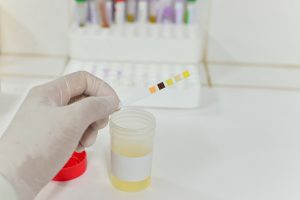 Urinary tract infections (UTIs) caused by E.coli bacteria can be prevented by bladder cells, according to research findings. The study, conducted by Duke Health researchers, explored the way bladder cells physically eject bacteria that cause UTIs. They compare the response to vomiting as a way to rid the stomach of harmful substances.
Urinary tract infections (UTIs) caused by E.coli bacteria can be prevented by bladder cells, according to research findings. The study, conducted by Duke Health researchers, explored the way bladder cells physically eject bacteria that cause UTIs. They compare the response to vomiting as a way to rid the stomach of harmful substances.
The findings suggest there is a method to use this natural ability of the bladder cells to help address recurring UTIs.
Advertisement
Senior author Soman Abraham said, “Because E. coli are able to hide inside of the bladder cells, it’s especially difficult to treat UTIs with regular antibiotics. So there is increased need to find new strategies for treatment, including co-opting any preexisting cellular tactics to combating infection.”
First author Yuxuan Miao explained, “When the cells have trouble digesting the materials in the lysosomes, a logical way to get rid of this potential hazard is to throw it up.”
The bladder cells physically expelled the bacteria through the cell membrane.
“It was thought that lysosomes always degrade their contents. Here we are showing for the first time that when the contents cannot be degraded, the lysosome appears to have a back-up plan, which is to expel the contents in capsules,” Miao added.
The findings hope to develop future targets and treatments for UTIs, which are a common occurrence among women.
Prevent urinary tract infections naturally
Advertisement
To treat a urinary tract infection, your doctor will first prescribe general antibiotics until the results of your urine test come back indicating the bacterium that caused the UTI. Then, your doctor may change your antibiotics to specifically target that strain of bacteria.
Other treatment options include drinking pure cranberry juice – not the sugary kind – or consuming cranberry extract.
Here are some alternative tips to help treat UTIs with home remedies and prevent future episodes of the infection.
- Don’t hold in your urine, always empty your bladder when you feel the need to go.
- Wipe front to back.
- Drink plenty of water.
- Take shower rather than bath.
- Avoid scented feminine hygiene products.
- Clean your genitals prior to and after sex.
- Urinate after sexual intercourse.
- Consider switching your birth control methods from a diaphragm to oral contraceptives.
- Wear cotton underwear and avoid tight underwear and jeans.
